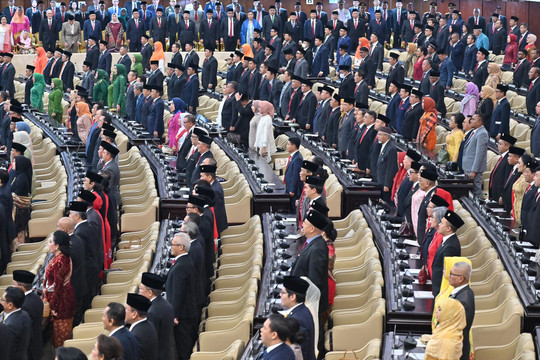First discussed in 2020, changes to the 2002 Broadcasting law pose a significant danger to democracy by restricting the media’s ability to hold the government accountable. Under the bill, electronic and television broadcasts of "exclusive investigative journalism” would be restricted, thereby limiting the public’s access to important information and undermining democratic transparency and accountability.
The revised Broadcasting Bill also contains measures restricting the broadcast of reports on LGBTQIA+ persons and behaviours and “professions or figures with negative lifestyles” ammong others, imposing severe sanctions for violations, ranging from written warnings to license revocation. The bill would also mandate the Indonesian Press Commission to consult with parliament when drafting new broadcasting regulations, despite the commission’s status as an independent entity.
No specific article in the revision regulates the diversity of media ownership, which potentially legalises the concentration of ownership and content. Currently, the broadcasting industry in Indonesia is dominated by a few powerful entities, which significantly impacts content diversity, political influence, and censorship according to the interests of the owners, especially those affiliated with certain political factions. The implementation of the Network Broadcasting System (SSJ) has also been ineffective due to regulatory issues, further strengthening the geographical concentration of ownership and control of broadcasting.
Opposition to the bill has been widespread, with protests from journalist organisations, academicians, and civil society groups. The bill was originally proposed by lawmakers in the House of Representatives to update the outdated 2002 Broadcasting Law and finalised in October 2023. The latest draft has faced criticism for its vague and restrictive articles.
AJI Chairperson Nani Afridasaid: “This bill clearly aims to restrict investigative journalism, which is a cornerstone of a free press. By curbing the ability of journalists to conduct and broadcast investigative work, the government is effectively trying to silence critical voices and limit public scrutiny.”
SINDIKASI said: “The Media and Creative Industry Workers' Union for Democracy (SINDIKASI) rejects the drafted revision of the Broadcasting Bill which is currently being discussed by the House of Representatives. SINDIKASI assesses that in the latest draft of the Broadcasting Bill contains are a number of problematic articles which will not only narrow freedom of expression of media workers, creatives, women and vulnerable groups when it is passed, but will also erode sources of income and welfare. […] We are worried that if the Broadcasting Bill with its various problematic articles is passed, it will cause extraordinary losses that will have to be borne by workers.”
IFJ General Secretary Anthony Bellanger said: “Press freedom is a pillar of democracy, and any attempt to curtail it is an attack on democratic values. The Broadcasting Bill in Indonesia is a regressive step that will hinder journalists from performing their duties and restrict the flow of information. We stand in solidarity with our Indonesian colleagues and call on the government to respect and uphold press freedom.”

